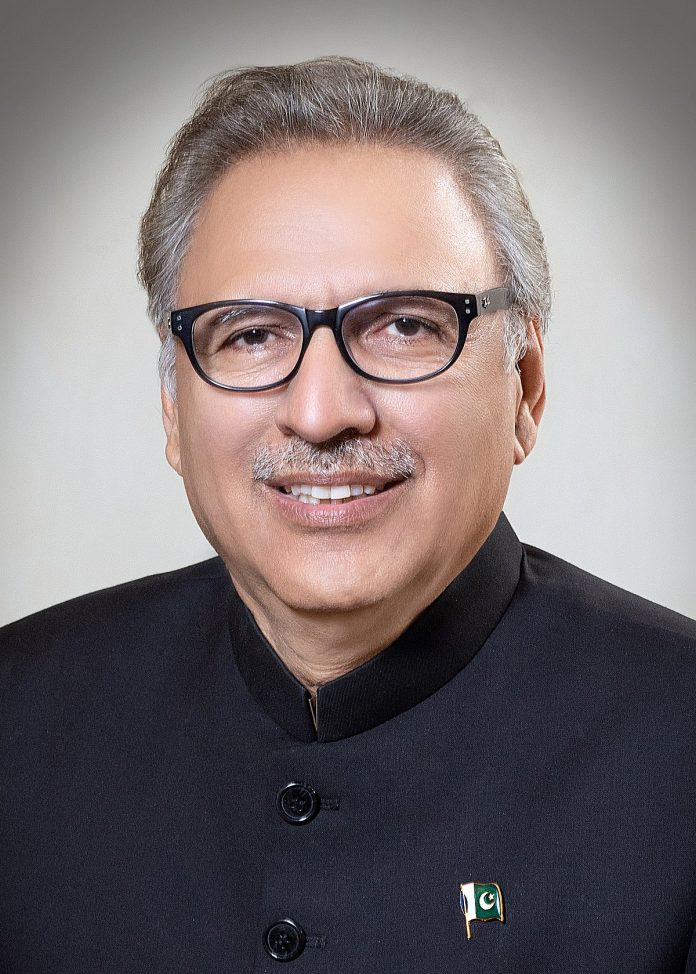ISLAMABAD, Apr 08 (DNA): President Dr Arif Alvi has returned the Supreme
Court (Practice and Procedure) Bill, 2023, for reconsideration to
parliament, stating that the legislation “prima-facie travels beyond the
competence of the Parliament and can be assailed as a colourable
legislation”.
The president has returned the bill unsigned as per the provisions of
the Article 75 of the Constitution days after it was sent to him for
approval after it sailed through the National Assembly and Senate amid
standoff between the government and the Supreme Court over snap
elections in Punjab and Khyber Pakhtunkhwa.
The president said he thought it fit and proper to return the Bill, in
accordance with the Constitution, with the request for reconsideration
in order to meet the scrutiny about its validity (if assailed in the
Court of Law).
The president said several aspects were required for due consideration.
Firstly, “Article 191 of the Constitution empowers the Supreme Court ‘to
make rules regulating the practice and procedure of the Court’. Under
such enabling provisions of the Constitution, the Supreme Court Rules
1980 have been made and in force duly validated – and adopted by the
Constitution itself. These time-tested Rules are being followed ever
since the year 1980 – any tinkering with the same may tantamount to
interference with the internal working of the Court, its autonomy and
independence,” he highlighted.
He said the Constitution was founded on the concept of trichotomy of
power – three pillars of the State whose domain of power, authority and
functions are defined and delineated by the Constitution itself.
He also cited Article 67 and Article 191 of the Constitution that define
the limits of parliament and the Supreme Court of Pakistan.
Article 67 that states – “subject to the Constitution, a House may make
rules for regulating its procedure and the conduct of its business….”
while Article 191 states that “subject to the Constitution and law, the
Supreme Court may make rules regulating the practice and procedure of
the Court”.
The president said, “Articles 67 & 191 are akin to each other and
recognize the autonomy and independence of each other respectively –
barring interference of one into the other’s domain”.
He said the top court was an independent institution as visualised by
the founding fathers that in the state of Pakistan ‘independence of
judiciary shall be fully secured’. With such an objective in view,
Article 191 was incorporated and the Supreme Court was kept out of the
law-making authority of parliament.
The competence of parliament to make laws stems from the Constitution
itself, he highlighted.
“Article 70 relates to ‘introduction and passing of Bills’ with respect
to any matter in the Federal Legislative List – enumerated in the Fourth
Schedule of the Constitution. Followed and further affirmed are the
provisions of Article 142(a) that Parliament can make laws ‘with respect
to any matter in the Federal Legislative List’. Entry 55 of Part I of
Fourth Schedule while empowering the Parliament to make laws in respect
of ‘jurisdiction and powers of all courts except the Supreme Court’
especially excluded the Supreme Court,” Mr Alvi said.
Thus, the Bill prima-facie travels beyond the competence of the
Parliament and can be assailed as a colourable legislation.
“The Constitution confers the Supreme Court with Appellate Jurisdiction
(Articles 185 – 212), Advisory (Article 186), Review (Article 186),
(Article 186) and Original Jurisdiction (Article 184). Article 184(3),
the focus of the Bill relates to original jurisdiction of the Court —
providing for the mode and manner for invoking it and providing Appeal.
The idea may be laudable but can such a purpose be achieved without
amending the provisions of relevant Articles of the Constitution —
established law is that the provisions of the Constitution cannot be
amended by an ordinary law as the Constitution is a higher law — father
of laws — a Constitution is not an ordinary law, but rather an
embodiment of fundamental principles, higher law, and law above other
laws.” DNA

















